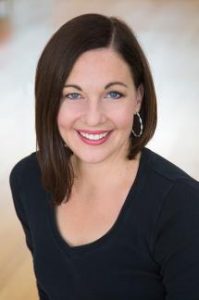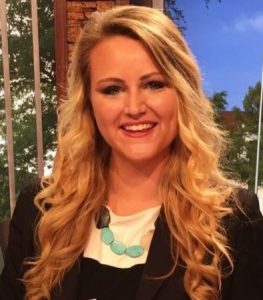By Morgan Heinrich
CEO and Co-Founder of Eosera Inc., Elyse Dickerson, started her own business because she wanted to use business as a force for good in the world.
After spending almost 18 years in corporate America, Dickerson realized that corporations did not value the people whose lives they were supposed to be improving.
“Focusing on profits and the bottom line wasn’t the way to promote a sustainable business,” Dickerson said. “I wanted my company to operate by putting purpose before profits and I am proud to say our company is pioneering in a movement called Conscious Capitalism.”
The female entrepreneur combined her three passions of health, fitness, and people to design her force for good- Eosera Inc.
Fort Worth-based company is majority woman-owned biotechnology company that is committed to developing products that address underserved medical needs.
This is Elyse Dickerson’s journey (so far) as a female entrepreneur.

Journey Part 1:
Preparation was the key to making Eosera’s mission of healing humans successful, she said.
“We prepared for eight or nine months before even asking for money,” Dickerson said. “A lot of people make the mistake of “winging it” but we wanted to be prepared.”
Dickerson’s Advice? Read. A lot. “Educate yourself on the angel investment world. Read books, take classes, and meet with people in the industry whether it is venture finance or starting a business. In a nutshell, you need to be smarter than your investors so that you can feel confident in your deals.”
Journey Part 2:
“We spent the first year with our own money,” Dickerson said.
Dickerson’s Advice? “The more business milestones that you can hit on your own dime, the higher the valuation you can place on your company when it’s time to raise capital. Investors want to see that you have skin in the game.”
After Eosera won $50,000 in a business pitch competition hosted by the Dallas Entrepreneur Center (the DEC) and Comerica Bank, Dickerson’s company received press and attention from potential investors.
Journey Part 3:
We set our terms and didn’t deviate from our plan.
“This was my first time fundraising and I was terrified to ask for money,” she said. “I experienced investors trying to change the terms with me… I experienced that ‘gut’ feeling of something being off with an offer.”
Dickerson said angel networks and investors will try their best to have the upper hand in a deal.
“It is your responsibility as the founder to be in control of your company and negotiations,” she said, “If an investor really believes in you and your company, they will invest on your terms.”
Dickerson’s Advice? Be Passionate. “If you don’t believe in your idea, no one else will. The investors must feel your passion and believe that you have what it takes to pull off the plan.”
Joe Griffin, Eosera’s CSO and Co-Founder said Dickerson’s confidence and passion were obvious during her many pitches.
“You could see the passion in her pitch and her audience could too,” Griffin said. “I think that is why we were so successful. We truly believe in our cause.”
The two-year-old company raised $1.2 million in three months.
Journey Part 4:
When I first started, I felt like I was begging for money or looking for handouts. But eventually, I had to reframe my mindset to realize that I was the one bringing potential investors a valuable opportunity to make money.
I think as a woman, we are afraid to ask for money and we are just bad at closing a deal and asking for that investment. But we need to change our mindset to empower ourselves to realize that we are worth the risk and our ideas are valuable.”
Dickerson’s Advice? Remember that you are bringing value. “Too many founders feel guilty asking for money. Remember that you are bringing a valuable opportunity to the potential investor.
Journey Part 5:
I quickly learned that if you don’t ask, they won’t offer- even after hearing your pitch. But the second you ask, people are more open the idea. You have to be confident about what you want.”
Dickerson’s Advice? “Your full time job is fundraising. Every breakfast, lunch, and dinner should be booked with potential investors or connectors. Give your pitch to everyone and ALWAYS close by asking for an investment.
Journey Part 6:
Practice Makes Perfect!
“We practiced our pitch over and over and over again,” Dickerson said. “I have 30 to 60 seconds to grab someone’s attention, so I always make my introduction dramatic.”
Dickerson’s Advice? “You will most likely have only five to six minutes to pitch your full idea, so make sure your presentation tells a story that the investors can relate to. Also, make sure you are fully prepared. You never know what a potential investor will ask.”
Journey Part 7:
Our first investor
“Our first investor was the most important,” she said. “Our lead investor, like many others, acted as a beacon for other investors. If your lead investor is accomplished and has a vast network, other investors will follow.”
A lot of people make the mistake of “hurting the ones you love,” Dickerson said.
“Friends and family money should be cash that they will never miss. You don’t want someone taking out their retirement or a second mortgage to support your dream,” she said.
“You need to be able to sleep at night if you can never repay them. If friends and family want to invest, be straightforward and tell them ‘don’t invest if you can’t afford to lose it.’”
Journey Part 8:
Deciding between good and bad money
“We had a few potential investor groups that just gave us a bad feeling,” Dickerson said.
Dickerson’s Advice? “Steer clear of any investor (or investor group) that gives you a bad “gut” feeling. Don’t be afraid to turn the money down if the investor wants to change the terms, seems overbearing, or wants to take control. Remember, that once you take an investors money, you and your business are married to them.”
Journey Part 9:
The journey still has not ended yet! We just launched our product Earwax MD on Amazon Exclusives. “We have many other products that we would like to develop in the near future.”
Dickerson’s Advice? “Stay laser focused on your product and don’t get sidetracked with line extensions too early in the lifecycle of your company. Prove that you can be successful with one idea and investors will flock to your for your ideas later down the line.
ABOUT THE AUTHOR:

Morgan is a Fort Worth, TX- based freelance journalist. She also works at Eosera Inc. in Dallas, Texas. She covers healthcare technology, public affairs issues, and an array of other areas. Morgan graduated from Texas Christian University with a BA in journalism.

